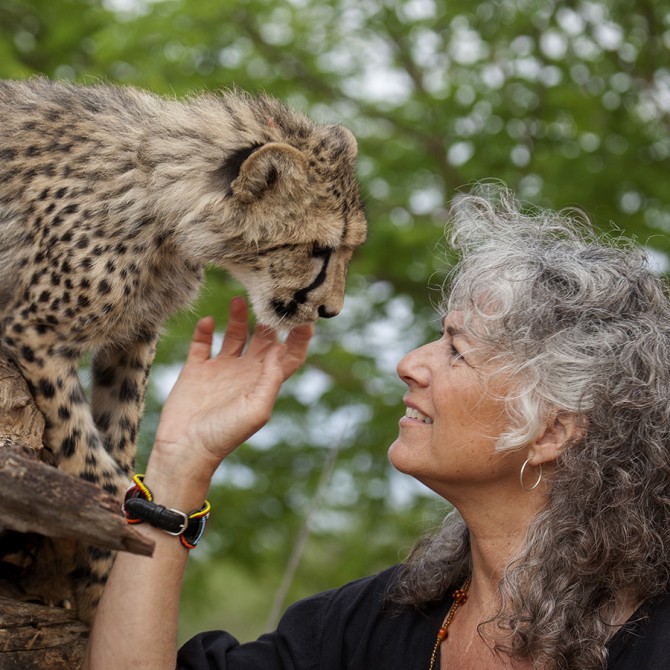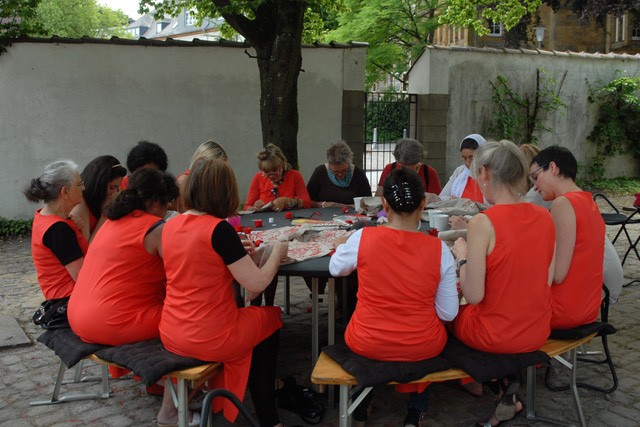Things to Do, April 5-12, 2019
Democrats, 200 years on
The Democratic Party began in the 1820s as an organization of and for white men who opposed a strong federal government. But the party gradually wooed a more inclusive constituency and its partisans built a national state that sought to advance the common welfare.
How did the party change, and which of those changes helped Democrats win elections and which did not? Michael Kazin, a professor of history at Georgetown University and co-editor of Dissent, a quarterly magazine of politics and ideas, will discuss “Lives of the Party: The Democrats from Andrew Jackson to Barack Obama and Beyond” in this year’s Carl Becker Lecture Series, April 9-10, presented by the Department of History in the College of Arts and Sciences.
On April 9, Kazin will present “The Long Life and Slow Death of the Jackson Party.” On April 10, he will speak on “The Rise and Fall of an American Labor Party.” Both lectures are free and open to the public, and will begin at 4:30 p.m. in the Hollis E. Cornell Auditorium, Goldwin Smith Hall.
Kazin is a prolific writer focusing on the history of politics and social movements in the United States. He has written six books, most recently “War Against War: The American Fight for Peace, 1914-1918” (2018, Simon & Schuster); he is at work on a history of the Democratic Party.
Kazin received a bachelor’s degree in social studies from Harvard University and a Ph.D. in history from Stanford University. He has lectured widely in the United States, Europe and Japan and has received various honors, including a Guggenheim Fellowship.
Cheetahs and humans
Laurie Marker, wildlife conservationist and A.D. White Professor-at-Large, will visit campus next week and give a public lecture on the relationship between humans and cheetahs Wednesday, April 10, at noon at the College of Veterinary Medicine. Her talk, “Cheetahs and Humans Sharing a Landscape,” is free and open to the public.
Marker, who is wrapping up her six-year tenure as an A.D. White Professor this semester, founded the Cheetah Conservation Fund in 1990. Working to save the cheetah and its habitat in Namibia and other countries, she takes a holistic multidisciplinary approach to conservation that includes education, research and working with Namibian farmers to improve livestock practices and decrease predation.
Marker has received numerous international awards, including being named a Time magazine “Hero for the Planet” (2000) and a Tyler Environmental Award Laureate (2010).
Marker’s talk will be hosted by Daniel Foley ’21, president of the Veterinary College’s Zoo and Wildlife Society.
Coupler plays ‘Dragnet Girl’
Cornell Cinema is screening the second of two films in its “Live Music & Film” spring series with “Dragnet Girl,” April 10 at 7:30 p.m. at Willard Straight Theatre. The film will be accompanied with a live score by electronic/ambient musical group Coupler.
This psychologically complex gangster tale, made in 1933, pivots on the growing attraction between Joji, a hardened career criminal, and Kazuko, the sweet-natured older sister of a newly initiated young hoodlum. It’s a relationship that provokes the jealousy of Joji’s otherwise patient female companion, Tokiko.
Coupler previously performed at Cornell Cinema with the German silent film “Our Heavenly Bodies.” Founded in 2012, the group is on tour with its score for “Dragnet Girl,” having recently accompanied the film to great acclaim at the Big Ears Festival in Knoxville, Tennessee.
Advance-sale tickets, available at CornellCinemaTickets.com, are $12 general, $9 for students and seniors; at the door, they’re $15 and $12, respectively.
The Cornell screening is co-sponsored by the Cornell Council for the Arts and the East Asia Program.
Cornell Cinema is showing “Material Incidents: The Cinema of Vincent Grenier,” at 7 p.m. April 11 in Willard Straight Theatre. The filmmaker will host the event; Grenier lives in Ithaca, New York, and teaches at Binghamton University. “Material Incidents” will feature six short films Grenier made between 1978 and 2018. The following night, “Rafiki,” a tender love story about two young women in Kenya, a country that still criminalizes homosexuality, will be shown at 7 p.m.
On both nights, the early film will be followed by a showing of “Vice,” the 2018 biopic starring an impressively transformed Christian Bale as vice president Dick Cheney. The April 11 screening will start at 9:20 p.m.; the following night’s showing will be at 9.
Masé at Johnson Museum
Swiss artist Elisabeth Masé will join in a conversation April 11 about her participatory project “The Dress”/Das Kleid,”which will be part of the exhibition “how the light gets in” this fall at the Herbert F. Johnson Museum of Art. The talk, free and open to the public, is scheduled for 5:15 p.m. in the Wing Lecture Room.
For the “Das Kleid” project at her gallery in Berlin, Germany, Masé hosted a series of embroidery workshops for women, including refugees, from a variety of cultural, economic and educational backgrounds, creating a sense of belonging and shared history. All the women wore the same red dress while at work, to level out their origin and status.
Aspects of “Das Kleid” will be included in the Johnson’s “how the light get in” exhibition, after Masé explores the specifics of Ithaca’s culturally diverse landscape and holds discussions about how a participatory project can reflect and impact the Cornell and broader Tompkins County communities.
The exhibition will run Sept. 8 through Dec. 6, throughout the museum.
A native of Basel, Switzerland, Masé now lives and works in Berlin. Her paintings and works on paper are in public and distinguished private collections in Switzerland, Germany and the U.S.
The Johnson Museum is open Tuesday through Sunday, 10 a.m. to 5 p.m. (open until 7:30 on Thursdays through May 2), and closed Mondays. Admission is free; call 607-255-6464 or email for more information.
Media Contact
Get Cornell news delivered right to your inbox.
Subscribe



